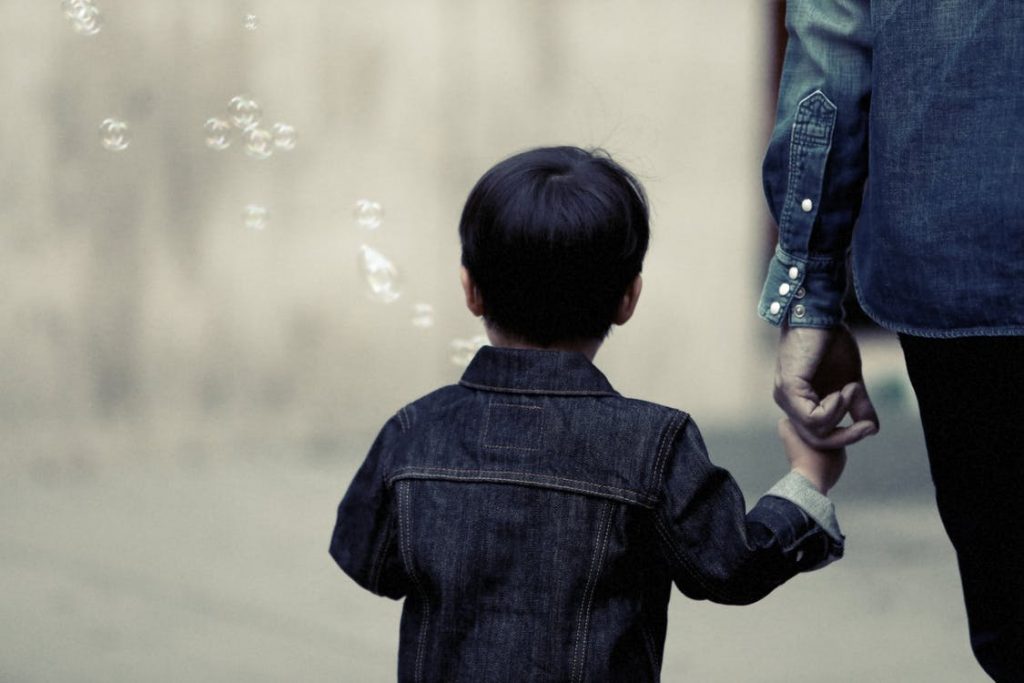‘The value of mentoring cannot be overstated’: A conversation with new Big Brother/Big Sister Program Coordinator Becky Lyle Sulkin

Becky Lyle Sulkin became JFCS’ new Jewish Big Brother/Big Sister Program (BB/BS) Coordinator this summer. After a few months in the position, she recently spoke about her own experiences in youth programming, what makes for a successful match between a Big and a Little, and her goals for the program.
Why did the BB/BS Coordinator position appeal to you?
 I’ve had a passion for working with kids since I was a teen myself. As a participant in multiple strong youth programs growing up, I developed an appreciation for the impact of innovative and engaging Jewish programming. Even more impactful, though, were the relationships fostered in these programs. The opportunity to facilitate such relationships for youth in our community was extremely appealing to me.
I’ve had a passion for working with kids since I was a teen myself. As a participant in multiple strong youth programs growing up, I developed an appreciation for the impact of innovative and engaging Jewish programming. Even more impactful, though, were the relationships fostered in these programs. The opportunity to facilitate such relationships for youth in our community was extremely appealing to me.
Having already worked at JFCS for two-and-a-half years when the job was posted, I had developed a deep dedication to the agency and its mission. Once I started talking to Program Manager Carole Cera and former Program Coordinator Bobbie Goldfarb about my ideas for it, my excitement for youth work was reignited. I was reminded that the value of mentoring cannot be overstated, and was eager to explore ways of connecting people to promote positive youth development.
What is your background?
I earned my Master of Social Work degree from Washington University in St. Louis. My concentration was in children, youth, and families, with a focus on administration. I have worked with Jewish youth of all ages in a variety of roles, settings, and communities: congregational preschool, day camp, overnight camp, religious school, JCC teen programs, and temple youth group. I also have clinical experience as a crisis intervention clinician and follow-up coordinator for a crisis line. Most recently, I worked as a targeted case manager at JFCS, serving adults with severe and persistent mental illness. I am licensed with the Minnesota Board of Social Work and am working toward becoming a Licensed Independent Clinical Social Worker (LICSW).
Many of the program’s matches remain extremely close – some even for decades. What makes for successful matches in this program?
That is an excellent question, and one for which the answer remains somewhat elusive! If you ask some of our longest-lasting matches, they will tell you, “It just works.” We are very intentional when matching our participants, considering things like mutual interests, personality traits, and individual goals. This (hopefully) makes for a good match. A truly successful match, though, is the result of hard work and dedication from the Bigs, Littles, and families.
For one active match that has been together for over eight years, the Big stressed the importance of free or low-cost activities for the sustainability of the relationship. This necessitates some creativity and collaboration by the Big and Little, which fosters ongoing development of the match. Many matches also have traditions, such as going to the State Fair together, that serve as a base for the relationship that they can return to year after year. Flexibility is important, too. Just as naturally-occurring relationships evolve—friends may see each other less frequently or do different activities together over time—so, too, must the match relationship evolve in order to continue long-term. Appropriate engagement and support from the Little’s family goes a long way in nurturing the match, as well.
How has BB/BS evolved in the 40-plus years it’s been around, and what are your goals for it in the coming years?
Lois Kozberg created the program in 1975. She saw a need for adult Jewish role models for young boys from whom a parent was absent due to death or divorce. With the successes of the first matches, the program was expanded to include young girls. We now serve youth from all types of households. Over the years, we have added teen volunteers as Bigs. We have also matched adult peers who could benefit from additional social support.
Though we have not explicitly changed the program’s focus or target population, we have seen multiple changes in the program’s population in recent years. For example, we had a large number of Orthodox participants in the program for a few years. We have seen a significant increase in the number of Littles with special needs related to developmental disabilities, social/emotional disturbances, and other factors.
As I personally reflect on the purpose of the program—to provide mentors for Littles who would benefit from having a positive Jewish role model—I have found myself asking: who wouldn’t benefit from having such a mentor? We plan to examine the mentoring needs of the local Jewish community in order to identify who would most benefit from having a mentor. Many exciting ideas have been discussed, including opportunities for collaboration with other JFCS departments and Jewish organizations. We plan to partner with local and national mentoring resources for support too. I look forward to sharing future developments!
Anything else you would like to add?
We are always accepting applications for Bigs and Littles! Interest forms can be found here, and I welcome people to call or e-mail me directly at bsulkin@jfcsmpls.org for information or to make referrals.
